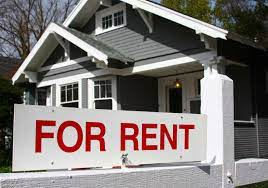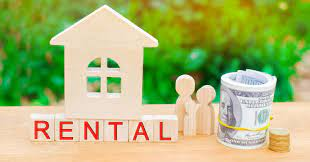
Residential rental real estate property refers to any property leased or rented out for residential purposes. This can include apartments, single-family homes, townhouses, and condominiums. Individual landlords, real estate investors, or property management companies typically own residential rental properties.
Advantages of Residential Rental Property
Investing in residential rental property can provide several advantages, including a steady stream of passive income and potential long-term appreciation in value. Additionally, owning residential rental property allows you to take tax deductions and take advantage of tax benefits, including deductions for mortgage interest, property taxes, and other expenses related to maintaining the property.
Factors to Consider When Investing in Residential Rental Property
When investing in residential rental property, there are several factors to consider. These include the location of the property, the condition of the property, and the rental rates in the area. Other factors to consider include the age of the property, the local housing market, and the availability of financing options.
Location:
One of the most important factors to consider when investing in residential rental property is the property’s location. Properties located in desirable neighborhoods with good schools and easy access to public transportation are more likely to attract high-quality tenants and command higher rental rates.
Condition:
The condition of the property is also an important consideration. Properties that require extensive repairs or renovations may be more expensive to maintain and may have a lower rental income potential. Additionally, properties that are in poor condition may not attract quality tenants.
Rental Rates:
Real estate investor needs to research the rental rates in the area to determine if the property has the potential to generate a positive cash flow. This can be done by analyzing comparable rental properties in the area and calculating the expected rental income based on the property’s location, size, and condition.
Age of Property:
Older properties may require more maintenance and repairs, increasing the costs of owning and managing the property. Additionally, older properties may not have the same amenities and modern conveniences as newer ones.
Local Housing Market:
Understanding the local housing and rental market is essential when investing in residential rental property. This includes analyzing supply and demand, vacancy rates, and market trends.
Financing Options:
Several financing options are available for investing in residential rental property, including traditional mortgages, private lenders, and government-backed loans. Researching and comparing financing options and the stock market is important to find the best fit for your investment strategy.
Managing Residential Rental Property
Managing a residential rental property can be a time-consuming and complex process. Landlords are responsible for maintaining the property, collecting rent, and handling tenant issues. Additionally, landlords and property managers must comply with federal, state, and local laws and regulations related to rental properties.
Investing in residential rental property can provide a steady stream of passive income and potential long-term appreciation in value. However, it is essential to consider the location, condition, rental rates, and other factors before investing in a property.
Additionally, managing a rental property requires time, effort, and knowledge of local laws and regulations. By following these guidelines for investing in real estate here, you can make informed decisions and maximize your return on investment.

Tips for Successful Residential Rental Property Investing
- Conduct Thorough Research
Before investing in residential real estate investing in rental property, conducting thorough research on the local market is essential. This includes analyzing the rental rates in the area, vacancy rates, and market trends. By understanding the local market, you can identify properties that have the potential to generate a positive cash flow.
- Calculate Your Expenses
To ensure your investment in real estate is profitable, you must calculate your expenses accurately. This includes mortgage payments, property taxes, insurance, maintenance costs, and other fees related to managing the property. In addition, you can determine the rental rates needed to generate a positive cash flow by calculating your expenses.
- Hire a Property Manager
Managing a rental property can be a time-consuming and complex process. Hiring a professional property manager can help you save time and avoid common pitfalls in managing a rental property. In addition, a property manager can handle tenant issues, maintenance requests, and other tasks related to managing the many rental property owners have.
- Screen Your Tenants Carefully
Selecting the right tenants is crucial for the success of your rental property investment. Therefore, screening your tenants carefully, including conducting background checks and verifying employment and income, is essential. In addition, you can minimize the risk of property damage and late rent payments by selecting high-quality tenants.
- Maintain Your Property
Maintaining your rental property is essential for attracting and retaining quality tenants. This includes regular maintenance, repairs, upgrades, and improvements to the property. In addition, maintaining your property can increase its value and command higher rental rates.
Investing in residential rental property can be a lucrative investment strategy. However, by following these tips, you can maximize your return on investment and avoid common pitfalls associated with rental property investing.
Remember to conduct thorough research, calculate your expenses accurately, hire a property manager, screen your tenants carefully, and maintain your property to ensure your investment in rental homes is profitable.

Maximizing Your Return on Investment with Residential Rental Properties
Residential rental properties can be lucrative, but knowing how to maximize your return on investment is essential. By your real estate investments and following the tips below, you can increase your chances of success in the rental property market.
- Choose the Right Location
Location is one of the most critical factors in the success of your rental property investment. When selecting a property, consider proximity to schools, shopping centers, and public transportation. Properties in desirable locations generate higher rental and lower vacancy rates.
- Determine Your Target Market
Understanding your target market is essential for selecting the right property and setting appropriate rental rates. For example, if you’re targeting young professionals, you may want to invest in properties near urban centers with access to public transportation. On the other hand, property near good schools and parks may be more appealing if you’re targeting families.
- Analyze the Property’s Cash Flow
Analyzing a property’s cash flow is crucial for determining its profitability. It would be best to choose the investment property’s net income; you considered rental income, expenses, and financing costs. If the property generates a positive cash flow, it may be a good investment opportunity.
- Determine the Property’s Cap Rate
The capitalization rate, or “cap rate,” is another essential factor when evaluating a rental property investment. The cap rate is the amount owning a rental property that’s the net operating income ratio to its market value. Higher cap rates indicate higher potential returns on investment.
- Consider Financing Options
Financing a rental property investment can be complex, but many options are available. Consider factors such as interest rates, loan terms, and down payment requirements when evaluating financing options. Working with a knowledgeable lender can help you find the best financing options for your investment.

- Conduct Thorough Tenant Screening
The success of a rental property investment depends heavily on the quality of tenants. Conducting thorough tenant screening, including credit and background checks, can help ensure that you select responsible and reliable tenants. This can minimize the risk of late or missed rental payments and reduce the likelihood of property damage.
- Maintain the Property
Maintaining the property is crucial for attracting and retaining tenants and preserving the property’s value. Regular maintenance, repairs, and upgrades can help keep the property in good condition and reduce the property owners’ risk of costly repairs. Responding promptly to tenant requests for repairs or maintenance is also essential.
- Set Competitive Rental Rates
Setting competitive rental rates is essential for attracting tenants and maximizing rental income. Research the rental rates in the area and adjust your rates accordingly. Consider offering incentives such as move-in specials or rent discounts to attract tenants and reduce vacancy rates.
- Stay Informed About Market Trends
Staying informed about real estate market trends can help you make informed decisions about your rental property investment. Keep updated with local market conditions, rental rates, and vacancy rates. This can help you make adjustments to your investment strategy as needed.
- Work with a Property Management Company
Managing a rental property can be time-consuming and complex. Instead, consider working with a reputable property management company to handle tenant screening, rent collection, maintenance, and repairs. This can help ensure that your investment in a rental home is managed efficiently and effectively.
Maximizing your return on investment with residential rental properties requires careful planning, research, and execution.
By selecting the right location, understanding your target market, analyzing the property’s cash flow and cap rate, considering financing options, conducting thorough tenant screening, maintaining the property, setting competitive rental rates, staying informed about market trends, and working with a property management company, you can increase your chances of success in the rental property market.
Investing in residential rental properties can be a profitable investment opportunity. You can maximize your return on investment by selecting the rental property worth the right location, understanding your target market, analyzing the property’s cash flow and cap rate, and considering financing options.
As with any investment, it’s essential to conduct thorough research and seek the advice of professionals before making any investment decisions.

CoopBusiness is a revolutionary cooperative business-building platform that empowers individuals to become entrepreneurs, business owners, and financially independent.
As a member, you’ll receive top-level business mentorship, access to our proprietary business systems, and the opportunity to access the funds you want to turn your business ideas into reality.